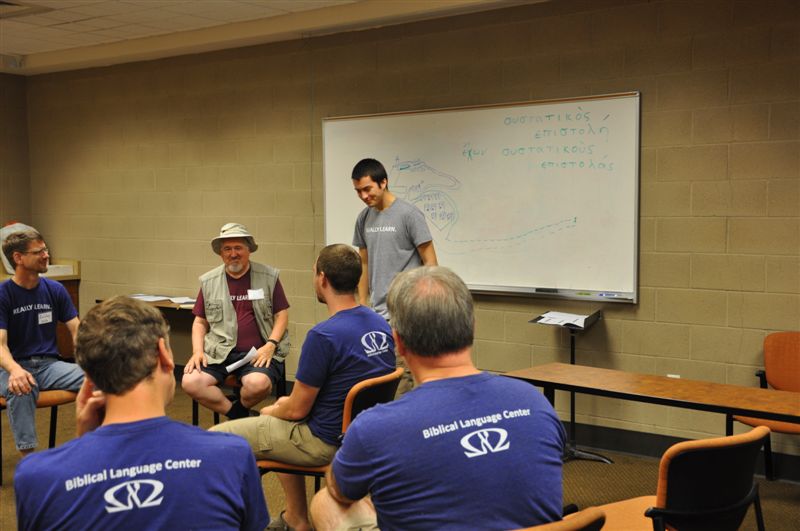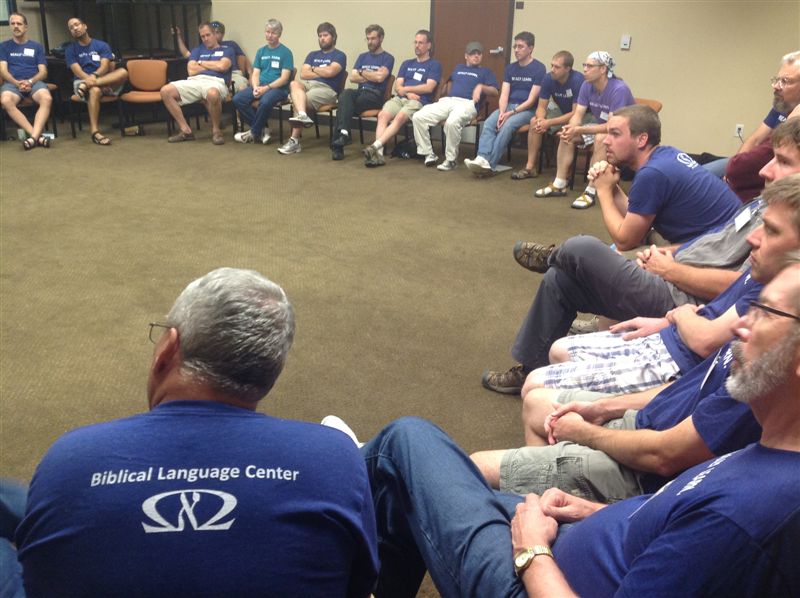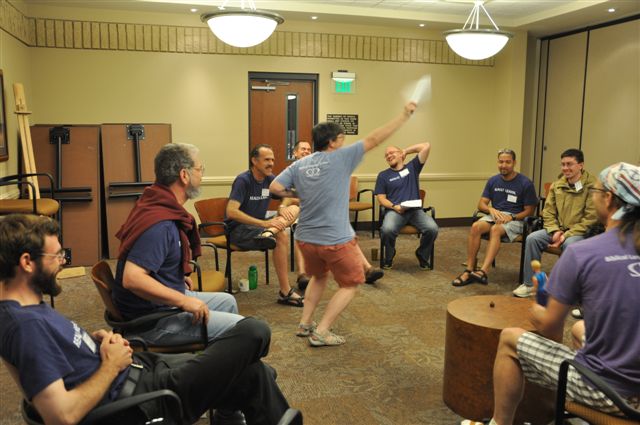I recently wrote a report on the Greek Fluency Workshop to share with my institution, and something dawned on me in a new way. First here is what I wrote (with more pictures from the workshop):
In simple terms, the two cornerstones of Communicative Language Teaching are providing students with comprehensible input (hearing the language just slightly above their current level of comprehension) and the opportunity for oral production (speaking practice as comprehension is being built up). Regrettably, neither of these have been a part of traditional curricula for the biblical languages with the unfortunate consequence that current teachers of New Testament Greek (and biblical Hebrew) are unable to speak in the language they are teaching. This in turn precludes them from being able to use Communicative Language Teaching pedagogies that enhance and speed up student learning of the biblical languages.
The advantages of Communicative Language Teaching are numerous: it fits all learning styles, not just the analytical mind; students enjoy it and often describe it as fun, even though the work load is intense; it allows for the internalization the language in addition to learning how to analyze the language; higher levels of language skill become attainable, both within the limited time frames and absolutely in terms of ultimate attainments; and more. Probably most significant of them all is that it allows for both faster and more advanced reading comprehension, of utmost importance when dealing with Sacred Texts. FPU faculty Ryan Schellenberg, who attended both last year’s and this year’s workshops, put it this way: “Since beginning to engage the language this way, I’ve seen that it is possible to read Greek, not merely to translate it. Sounds like a subtle distinction, perhaps, but it’s a much richer experience.” Another participant concurred, “I was skeptical but I came away seeing how this improves my reading skills.” One put it this way: “Before
This is one way in which the workshops are particularly useful. Research into the mechanics of reading is demonstrating how oral fluency is key for advanced reading comprehension. But without anyone in the field of Koine Greek with such fluency, it has not been possible to test or experience. Before dismissing such claims, therefore, we need to see this fluency built up and worked out within the world of New Testament studies, in the same way that it has been tried and tested with modern languages. It is at these workshops that professors are first able to catch a glimpse of how fluency does indeed enhance their reading comprehension of the Scriptures. It may only be a glimpse, but already the feedback suggests it holds great promise, as the comments above demonstrate. What is more, one church leader present at the workshop realized that bringing Koine Greek fluency to New Testament studies is not just about introducing a pedagogical shift, but about impacting lives: “Every workshop makes a big difference in real lives… The program here will impact our church body for years to come… May God bless you as you teach many to ‘really learn’ the biblical languages which bring us God’s truth” (emphasis by the author).
I realized anew in writing this that in the same way that some who have not invested in learning the biblical languages will downplay the usefulness of learning them (even denigrate it), so it is that all those who doubt the usefulness of becoming fluent in the biblical languages have never tried it. Nor, to echo a biblical passage, have they believed the testimony of those who have, or are trying to, become fluent.






Do you have a sample lesson or page of how you teach or how easy it would be to learn Greek for a not so literate person like me?
Thank you, And God bless your ministrie!
Victoria
Hi Victoria; Thanks for your question. Unfortunately, I am not aware of any sample page or audio that is available on-line. The best I can suggest at this point is to look at the “Hebrew – First Lesson” demo video. While it is Hebrew, the Greek works in exactly the same way, and it should give you a good idea of how one can start learning Koine Greek. As to how easy it is? As easy as learning any language. If you can speak, your brain is already wired to learn a another language! It simply takes time hearing it, then after a while, producing it. The advantage of the BLC materials is that they are the only ones I know of that allow you to approach Koine Greek primarily by hearing it (rather than having to read it right away). And even though hearing it is easier than having to read it, it allows for faster internalization of the language. Blessings on your efforts.